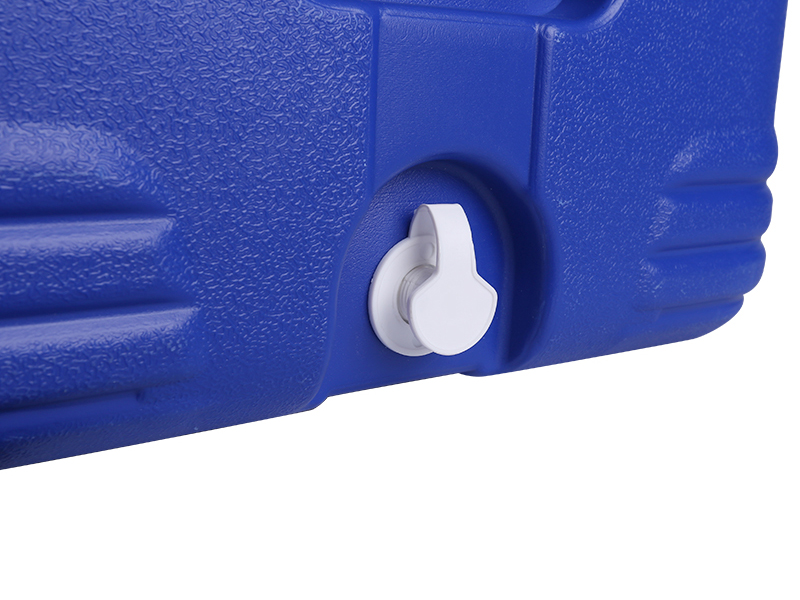A little science can save your ice cubes from melting quickly—and it’s easier than you think.
Maki Yazawa is a food writer at Well+Good and a former food writer at Real Simple. Ice Chest Cooler Box Set

Kristy Del Coro is a registered dietitian nutritionist, RDN, and professionally trained chef with more than 10 years of experience in the field of culinary nutrition. Her strong background in nutrition science, sustainable food systems, and culinary education makes her exceptionally qualified to write about food that is good for us and the planet—while not sacrificing flavor.
Before you get ready to pack your ice cooler for your next camping trip or day at the park, there are some steps you can take to ensure your ice—and ultimately, your food—stay as cold as possible for as long as possible.
One of the biggest challenges when it comes to using a cooler is preventing the ice from melting quickly, which can make your food soggy (not to mention unsafe) and your drinks hot. And what's worse than warm beer? Luckily, all you need are a couple of household items and some genius packing hacks to prolong your cooling capacity.
The most important way to keep your cooler cold is to keep the heat out. A great way to do this is by lining the inside of your cooler with aluminum foil, which helps reflect heat and light that will quickly melt your ice. You can also use thermal bubble wrap to help keep the hot air out and cool air in. Another idea is to throw a layer on top of your cooler to help reflect away any additional UV rays.
Take into consideration the type of activity you will be embarking on before choosing the best cooler to use. Soft nylon and polystyrene foam coolers provide a moderate amount of insulation and are more suitable for shorter, day trips. However, if you're planning on camping overnight or going on a longer trip, you may want to invest in a more durable plastic cooler or perhaps another hard-sided cooler that will stay cold for much longer. You also should avoid metal coolers as they tend to absorb heat more easily.
RELATED: 13 Genius Ideas for an Effortless Outdoor Party
One of the best ways to keep your ice colder for longer is by chilling your cooler before you place the fresh ice in it. You can do so by adding ice a couple of hours prior or even the day before and allowing the cooler to chill as much as possible. This will help prolong the life of the fresh ice once you're ready to go. You can also freeze water bottles or non-carbonated drinks that will act as additional cooling items to help preserve your ice. Also, make sure all of the items you're going to place in the cooler are also well-chilled in advance. Instead of placing hot or room temperature drinks or food into the cooler, freeze or chill as much as possible beforehand.
RELATED: Here's the Best Way to Store Food in the Freezer
An advantage of using large ice blocks is that they have less surface area exposed to hotter outside air than smaller ice cubes. Thus, larger ice blocks melt at a much slower rate than cubed ice. You can easily make your own DIY ice blocks by using a clean, empty milk carton as a mold. Fill the carton with water (make sure to leave room for it to expand) and freeze. Once frozen, remove the carton and place it in your cooler. Though they are bulky, they will last much longer and work more effectively.
Use a light-colored wet towel to wrap the cooler and keep it under the shade. As wind passes over the towel, the water will begin to evaporate. As the water turns to vapor, it will make the towel colder. This will help keep the cooler's temperature down and make your ice last even longer.
As you open and close the lid to your cooler, warm air will enter, melting the ice quicker. Organize your cooler with items that you will more frequently need to one side to lessen the amount of time the lid remains open. Instead of having to dig around to find what you need, strategically organize your cooler to make each opening as efficient as possible.
Dry ice, the solid form of carbon dioxide, has a much lower temperature than ordinary water ice (-109.3°F zero vs. 32°F). Place the dry ice at the bottom of your cooler and then layer with regular ice over the top. The dry ice will help cool down the regular ice and will turn into gas as it melts, leaving no unwanted messes or excess water to clean up after.
If you're camping for a few days, you may want to consider burying your cooler in the ground. As unconventional as this may sound, the cool soil will help maintain the temperature for a longer period. Simply make sure you bury it only three-quarters of the way and choose a shady spot.
Despite what you may think, keeping the melted water in the cooler is counterintuitive. Water is much more likely to transfer heat via convection and will encourage the ice to melt further. By removing the water as it accumulates, your ice will melt at a slower rate.

Fishing Boat Ice Box By clicking “Accept All Cookies”, you agree to the storing of cookies on your device to enhance site navigation, analyze site usage, and assist in our marketing efforts.